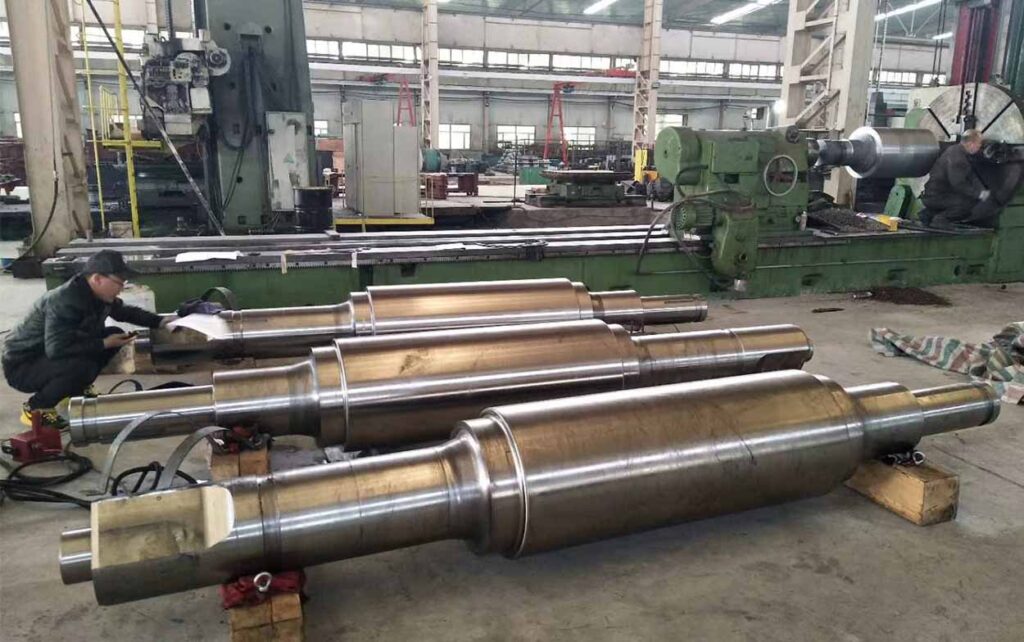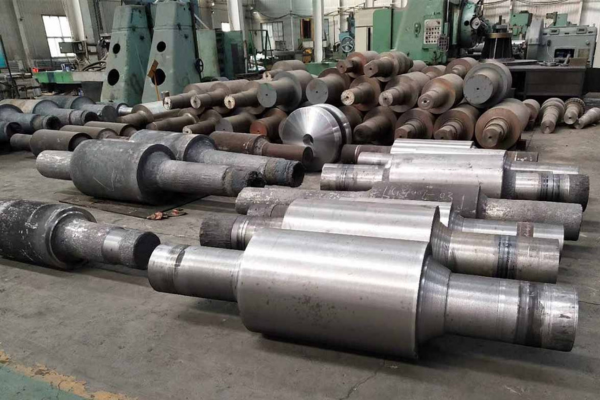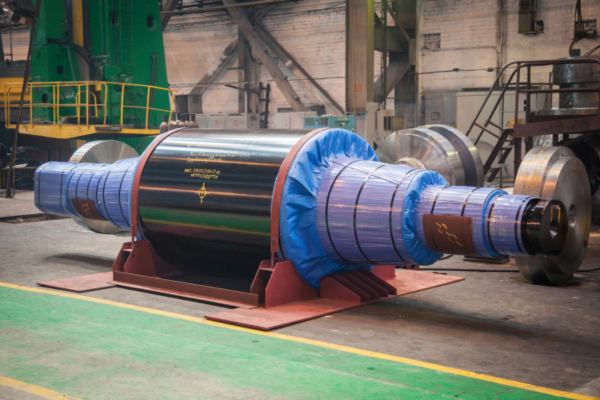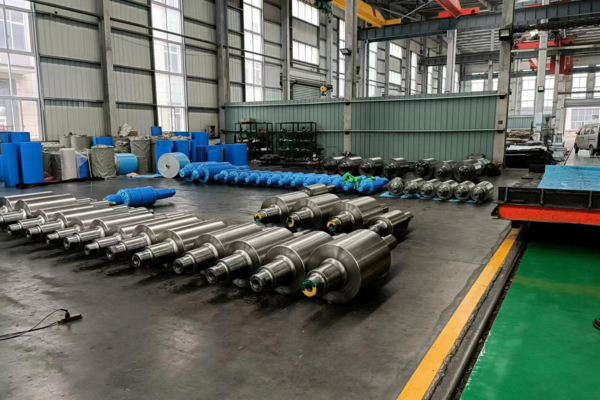Rolls
Our range of rolls includes work rolls, backup rolls, and intermediate rolls, each serving specific functions and operating under different conditions to ensure efficient and precise metalworking operations.
Our Products
Let’s Start Work
Together
Please feel free to contact us. We will get back to you with 1-2 business days. or just call us now.

Rolls Overview
Rolls are an essential component in the steel manufacturing industry, playing a crucial role in the process of shaping and forming steel materials. Our range of rolls includes work rolls, backup rolls, and intermediate rolls, each serving specific functions and operating under different conditions to ensure efficient and precise metalworking operations.
Range of Rolls

Work Rolls

Work rolls are the primary rolls involved in the shaping and deformation of steel materials during the rolling process. They come in various sizes and configurations, depending on the specific requirements of the rolling mill and the type of product being produced. Work rolls are typically made of high-quality alloyed steels or tool steels that possess excellent wear resistance, strength, and heat resistance. They are designed to withstand high pressures, intense rolling forces, and elevated temperatures encountered during the rolling operation. Work rolls are responsible for reducing the thickness and changing the shape of the steel material as it passes through the rolling mill.
Backup rolls provide support and stability to the work rolls, ensuring proper alignment and control of the rolling process. They are larger and stronger than work rolls and are positioned behind them in the rolling mill. Backup rolls help maintain the desired shape and thickness of the steel material by counteracting the forces exerted by the work rolls. They are often made of forged steel or cast iron with high strength and excellent resistance to wear, heat, and deformation. Backup rolls undergo rigorous heat treatment processes to enhance their mechanical properties and prolong their service life.
Backup Rolls



Intermediate Rolls

Intermediate rolls, also known as inter stands or edger rolls, are positioned between the work rolls and backup rolls in a rolling mill. They assist in controlling the material flow, shape, and alignment during the rolling process. Intermediate rolls are designed to provide additional support, reduce edge defects, and improve the overall quality of the rolled steel products. They are manufactured using similar materials and techniques as work rolls and backup rolls to withstand the demanding conditions of the rolling operation.
Applications of Rolls
Hot Rolling
Rolls are extensively used in hot rolling mills to shape and form steel materials at high temperatures. Hot rolling processes involve reducing the thickness and changing the shape of steel slabs, billets, or ingots into various intermediate or finished products, such as plates, sheets, bars, and structural sections.
Cold Rolling
Rolls are also employed in cold rolling mills, where steel materials are processed at room temperature to improve their surface finish, dimensional accuracy, and mechanical properties. Cold rolling processes involve reducing the thickness of steel coils or sheets while imparting specific surface textures or finishes.
Tandem Rolling
Tandem rolling mills utilize multiple stands of rolls to achieve incremental thickness reduction and precise shape control of steel materials. Work rolls, backup rolls, and intermediate rolls work in sequential stages to gradually reduce the thickness of the steel material and achieve the desired final dimensions.
Key Features and Benefits
Precise Dimensional Control
Rolls ensure accurate and consistent thickness reduction, shape control, and dimensional accuracy of steel materials during the rolling process.
Improved Surface Quality
Rolls contribute to achieving superior surface finish and quality of rolled steel products. They help minimize surface defects, such as scratches, scale, or marks, ensuring a smooth and visually appealing surface.
Enhanced Material Properties
Rolls play a crucial role in controlling the mechanical properties of rolled steel materials. Through precise shaping and deformation, they can influence the material's hardness, strength, and other mechanical characteristics.
Increased Productivity
Rolls designed for high-performance rolling mills can withstand demanding conditions, enabling faster production rates and increased productivity. Their durability and resistance to wear contribute to longer operational life and reduced downtime for roll changes.
Process Optimization
Rolls are engineered to optimize the rolling process, ensuring efficient material flow and minimizing energy consumption. Proper roll selection and maintenance can lead to improved process stability, reduced scrap rates, and better overall production efficiency.
Customization and Flexibility
Rolls can be customized to meet specific rolling requirements, such as the production of different steel grades, sizes, or shapes. Manufacturers can tailor the roll materials, dimensions, and surface coatings to achieve optimal performance and adapt to varying production needs.
In summary, our range of rolls, including work rolls, backup rolls, and intermediate rolls, are essential components in the steel manufacturing industry. They ensure precise shaping, dimensional control, and surface quality of rolled steel products in hot rolling, cold rolling, and tandem rolling processes. With their robust construction, heat resistance, and wear resistance properties, our rolls are designed to withstand the extreme conditions encountered in rolling mills. By utilizing our high-quality rolls, steel manufacturers can achieve optimal production efficiency, superior product quality, and cost-effective operations.

